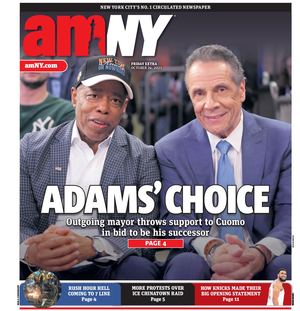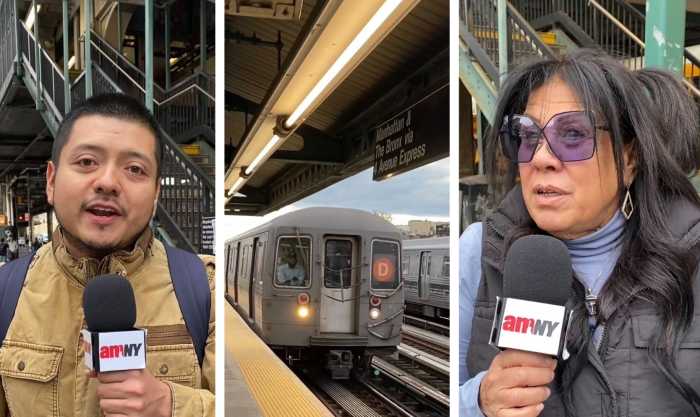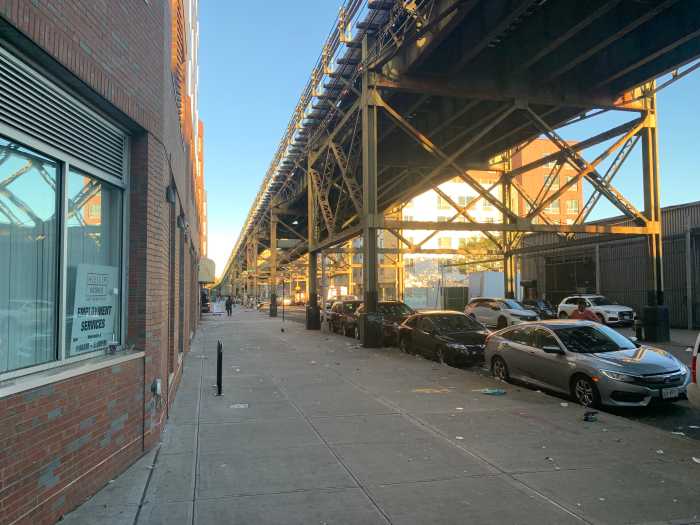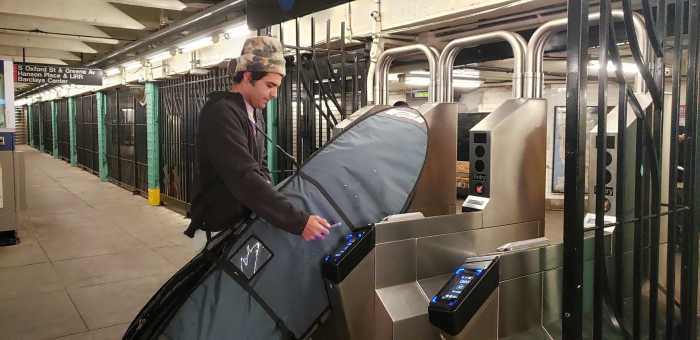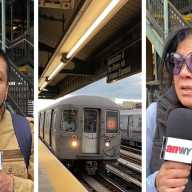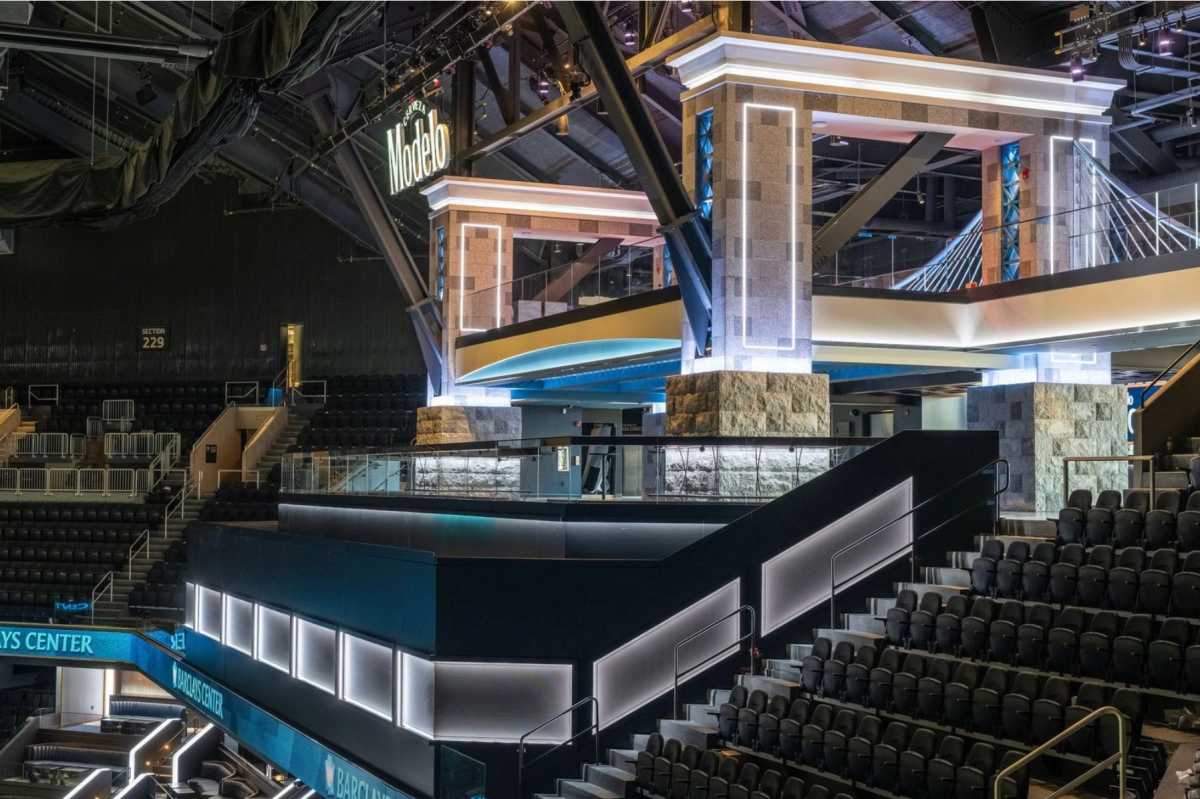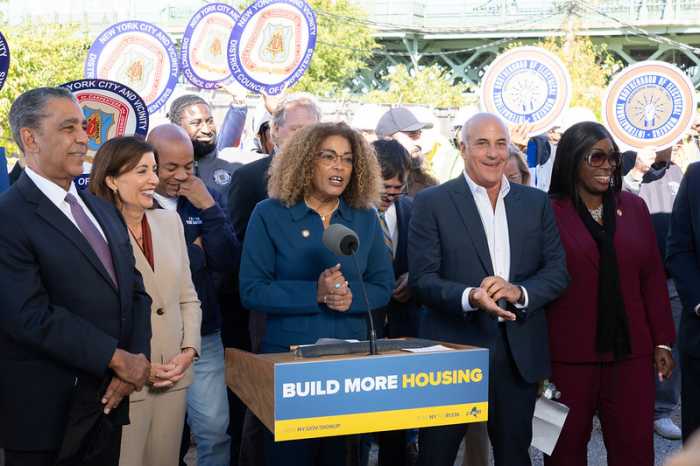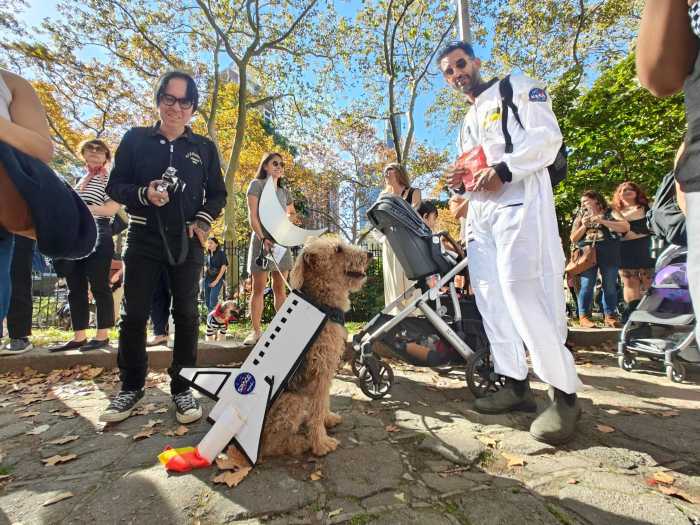
Maybe he will Citi Bike to the gym.
Mayor Bill de Blasio will not go back to car ownership once he leaves office and returns to his home in Park Slope, he told reporters on Thursday while announcing parking spaces dedicated to car sharing services.
The mayor has been criticized for routinely having his security detail drive him from Gracie Mansion to his neighborhood YMCA in Brooklyn instead of using — or strongly advocating for — mass transit. But that will change once he leaves office and no longer requires that escort, de Blasio said.
“Whether I like it or not, I am a prominent person and there are security realities that go about being this person and holding this role, and the NYPD can speak to that,” de Blasio said. “But on January 1, at 12:01 a.m. on 2022, I get to do my own thing. And I’m going to go back to my house on 11th Street, and I am not owning a car — guaranteed.”

Instead, the mayor said he would rely on mass transit and car share services from the likes of Zipcar and Enterprise. The city has begun reserving spaces for both companies as part of a pilot car-sharing program that will formally begin Monday.
Under the two-year initiative, both companies will have access to 285 parking spaces on city streets and in municipal lots as well as another 24 spots in public housing developments, thanks to a City Council law sponsored by Manhattan Councilman Mark Levine.
Spaces will be reserved in all boroughs except for Staten Island as part of a pilot that aims to increase access to the services and eventually reduce car ownership and car congestion.
Each company is paying the city $765 in licensing fees to reserve the spots during the course of the pilot, on top of additional fees for spots within the municipal lots.
In a city with millions of on-street parking spaces, the pilot will be operating on a small scale. But if it proves successful, de Blasio said it could be expanded to “hundreds of thousands” of New Yorkers by offering a cheaper alternative to car ownership.
“Chirlane and I have discussed it,” the mayor said, referring to talks he has had with the first lady regarding car ownership in the city. “It doesn’t make sense. Unless you need your car every single day, it makes no sense to own a car in New York City. Now we have options that didn’t use to exist.”
The mayor went on to say that if “we don’t reduce the number of cars (in the city), we’re all screwed.”
Critics have pointed out that de Blasio has overseen a growing municipal work force that has logged more miles in city vehicles than during the previous administration and that de Blasio has opposed congestion pricing, which could cut down on some of the more than 2.6 million cars that cross free city bridges on any given day.
Though the mayor considers congestion pricing to be unfair to outer-borough car owners, he has softened his stance on the policy over time and, on Thursday, said it “must be discussed” as a mechanism to reduce traffic.
“I also think that the governor’s commission contributed something positive to the discussion by providing a vision of congestion pricing that was different from the one in the past that included the bridges, and I applauded them for that,” de Blasio said. “I’m certainly willing to keep talking about it. I have the same fairness critiques and concerns on behalf of the outer- boroughs I’ve always had about congestion pricing, but I’m willing to talk about it.”
